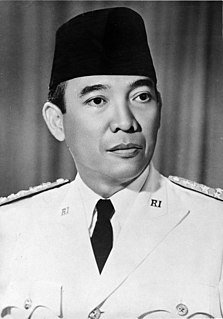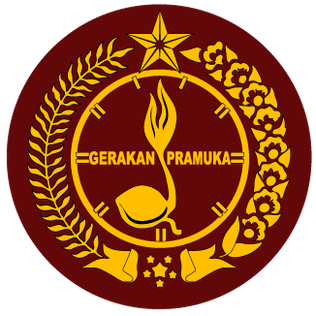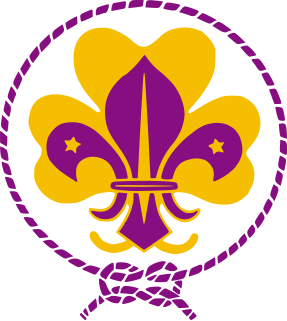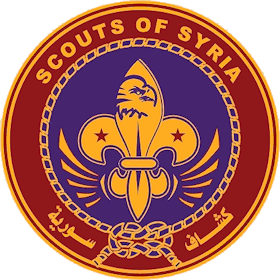| Ikatan Pandu Indonesia | |||
|---|---|---|---|
 | |||
| Location | Jakarta | ||
| Country | Indonesia | ||
| Defunct | August 14, 1961 | ||
| chief commissioner | Tuan Soemardjo | ||
| honorary President | Dr. Bahder Djohan | ||
| Affiliation | World Organization of the Scout Movement 1953-1961 | ||
Ikatan Pandu Indonesia (Ipindo) was the World Organization of the Scout Movement-recognized Indonesian national Scouting federation from 1953 to 1961.

The World Organization of the Scout Movement is the largest international Scouting organization. WOSM has 170 members. These members are recognized national Scout organizations, which collectively have over 50 million participants. WOSM was established in 1922, and has its operational headquarters at Kuala Lumpur, Malaysia and its legal seat in Geneva, Switzerland. It is the counterpart of the World Association of Girl Guides and Girl Scouts (WAGGGS).

Indonesia, officially the Republic of Indonesia, is a country in Southeast Asia, between the Indian and Pacific oceans. It is the world's largest island country, with more than seventeen thousand islands, and at 1,904,569 square kilometres, the 14th largest by land area and the 7th largest in combined sea and land area. With over 261 million people, it is the world's 4th most populous country as well as the most populous Muslim-majority country. Java, the world's most populous island, is home to more than half of the country's population.
When Indonesia became an independent country, there were more than 60 separate Boy Scout and Girl Guide organizations. Most were directly affiliated with some certain political parties or social groups. Attempts were made to unify all Scout organizations into one. The fact that Indonesia is made up of many islands made administration and supervision difficult, and the Japanese occupation caused some twenty separate Scout organizations to spring up, so it took time for them to coalesce. In September 1951 thirteen of the stronger Scout and Guide organizations nationwide met and decided to found a federating body to satisfy national and international needs.

The Japanese Empire occupied the Dutch East Indies, now Indonesia, during World War II from March 1942 until after the end of the war in September 1945. The period was one of the most critical in Indonesian history. The Dutch East Indies had been a colony of the Netherlands since 1819. However, the Netherlands itself had been occupied by Germany, and thus had little ability to defend its colony against the Imperial Japanese Army, and less than three months after the first attacks on Borneo, the Japanese navy and army overran Dutch and allied forces. Initially, most Indonesians joyfully welcomed the Japanese as liberators from their Dutch colonial masters. The sentiment changed, however, as Indonesians realized that they were expected to endure more hardship for the Japanese war effort. In 1944–1945, Allied troops largely bypassed Indonesia and did not fight their way into the most populous parts such as Java and Sumatra. As such, most of Indonesia was still under Japanese occupation at the time of its surrender in August 1945.
Ipindo's motto was "Sedia", meaning "Be Prepared" in English. Tuan Soemardjo was elected chief commissioner, and Dr. Bahder Djohan, an old Scout and Minister of Education, became honorary President. Government approval of Ipindo was granted on February 22, 1952, and President Sukarno consented to become patron of the unifying and correlating National Scout Council. Soon, other Scout and Guide organizations began to merge into Ipindo. [1]

English is a West Germanic language that was first spoken in early medieval England and eventually became a global lingua franca. It is named after the Angles, one of the Germanic tribes that migrated to the area of Great Britain that later took their name, as England. Both names derive from Anglia, a peninsula in the Baltic Sea. The language is closely related to Frisian and Low Saxon, and its vocabulary has been significantly influenced by other Germanic languages, particularly Norse, and to a greater extent by Latin and French.

Bahder Djohan was the 6th Minister of Education and Culture of Indonesia. He served in the Natsir and Wilopo Cabinets.

Sukarno was the first President of Indonesia, serving from 1945 to 1967.
With the 1961 decision to absorb the Fadjar Harapan Pioneer movement organization (founded in 1959), the establishment of a single Scout Movement organization in Indonesia called Gerakan Pramuka Indonesia was officially complete. In May 1961, the then President of Indonesia, Sukarno, signed a presidential regulation making Gerakan Pramuka the official Scout and Guide organization in Indonesia.
Fadjar Harapan was a short-lived Indonesian pioneer organization, linked to the Communist Party of Indonesia (PKI). Fadjar Harapan was founded in 1959, albeit that there already was an existing Scouting movement initiated by the Communist Party. However, the organization was officially not connected to any political party and was open to all children between the ages of six and thirteen. The initiative to found the new organization was taken by the party leader Aidit. Cadres of the Communist Party and Pemuda Rakjat were given the task to study how pioneer movements functioned in other countries, but adapting Fadjar Harapan to Indonesian conditions.

Gerakan Pramuka Indonesia is the national Scouting organization of Indonesia. Scouting was founded in the Dutch East Indies in 1912, and Indonesia became a member of the World Organization of the Scout Movement (WOSM) in 1953. It has 17,103,793 members, making it the world's largest Scout association. Each year August 14 is celebrated as Pramuka Day to honor the organization's first public parade.








